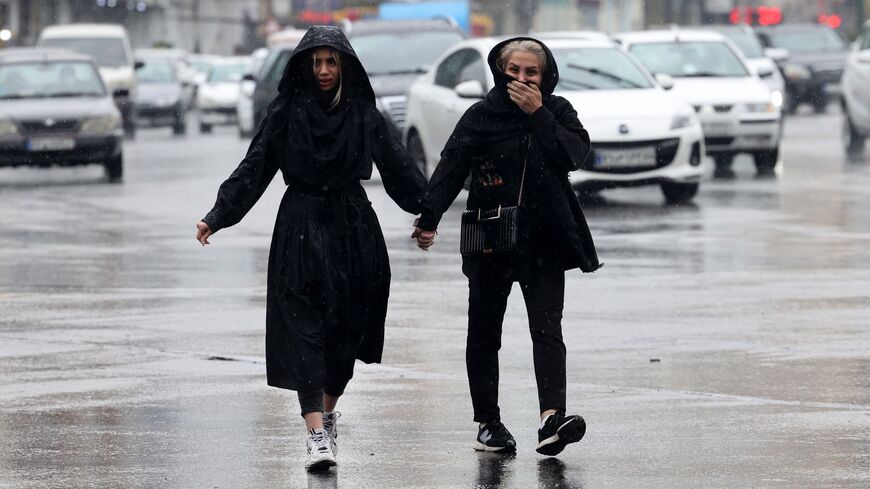Coinciding with the return of Iran's morality police to the nation's streets to enforce the mandatory hijab for women, Iranian authorities appear intent on continuing an execution spree targeting this week the Baluch minority.
On Wednesday, the Oslo-based Iran Human Rights (IHR) tweeted its concern about the recent spate of executions targeting the Baluch minority. According to the group, 11 Baluchi men had been executed within 48 hours on drug charges.
The Baluch community, concentrated in Sistan and Baluchestan province in the southwest, constitute 2% of Iran’s total population, according to the United States Institute of Peace. As a Sunni community, and thus a religious minority, the Baluch are subject to regular discrimination by authorities in Shiite-majority country.
In a report released Wednesday, the IHR claimed that in July Iran had executed 61 people, including four women and five Afghan nationals, in addition to the 11 Baluchis.
#Iran: 11 BALUCH MEN SECRETLY EXECUTED FOR DRUG CHARGES WITHIN 48 HOURS!
— Iran Human Rights (IHR NGO) (@IHRights) August 2, 2023
72-year-old farmer, Hossein Gomashadzehi, 30-year-old Yousef Kalbali and an unidentified man, all Baluch minorities sentenced to death for drug-related charges, were secretly executed in Zahedan Central… pic.twitter.com/7quPhWiNKc
A spike in executions began in September 2022, when anti-regime protests swept the nation in response to the death of 22-year-old Mahsa Amini while in custody following her arrest by the morality police for allegedly violating the mandatory hijab rules.
Amnesty International reports that in 2022 Iran executed at least 576 people, an 83% increase compared to in 2021. According to IHR, at least 423 known executions have already taken place this year. The crimes for which prisoners receive death sentences range from drug offenses to rape and murder, among others.
Iran's morality police is intensifying its crackdown on women not wearing a hijab ahead of the anniversary of Jina Mahsa Amini's death. pic.twitter.com/GrdtvWUU65
— DW News (@dwnews) August 1, 2023
Rights groups have accused Iranian authorities of using death sentences as a tool to sow fear among the public. The surge of recent executions comes as the morality police resumed work across Iran in July after a months-long absence. Iran’s prosecutor general had announced the suspension of the unit’s work last December following the unleashing of widespread anger at Amini’s death.
The morality police, officially the Guidance Patrol, began operating in 2006 as a branch of the police force. Its members primarily patrol the streets of Iran to enforce the country’s strict Islamic dress code. Iranian law dictates that all women wear a hijab in public to cover their hair and loose clothing to cloak their figures.
In April this year, authorities installed cameras in public places to track and identify unveiled women, a measure widely denounced by rights activists. In mid-July, a criminal court sentenced two women to prison on charges of violating the Islamic dress code after they were identified based on surveillance footage of the streets. Last month, a woman who published a photo of herself without a veil was arrested and sexually harassed by police, according to Iran Prison Atlas, an online database of political prisoners and prisoners of conscience maintained by the group United for Iran.
Meanwhile, in the coming weeks, the Iranian parliament is expected to discuss a new draft law on the hijab that includes longer prison terms for women violating the dress code and the use of artificial intelligence to identify violators.








